ITPC Agenda
Agenda as of October 24, 2018
Download as PDF (156Kb)
Sunday, November 4
16:00-19:00
Conference Check-In
18:00-19:30
Welcome Reception - sponsored by TEL
Monday, November 5
07:00-08:00
Attendee Breakfast
08:00-08:10
Welcome Remarks - Ballroom
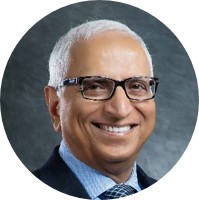 Ajit Manocha
Ajit Manocha
CEO
SEMI
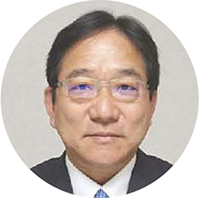 Tad Suhara
Tad Suhara
President and CEO
SCREEN
Chairman, ITPC Committee
Session 1 - sponsored by Accenture
08:10-08:40
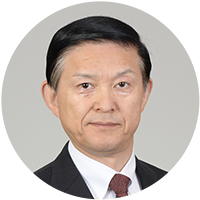 Yasuo Naruke
Yasuo Naruke
President and CEO
Toshiba Memory Corporation
"Toshiba Memory Corporation Business Strategy"
Toshiba Memory Corporation successfully completed its separation from Toshiba Corporation and launch corporate activity under our new shareholders as an independent company on June 2018. Flash memory market is expected continued strong growth in the mid and long term along with progress of AI and IoT. Going forward, Toshiba Memory Corporation will continue to actively cultivate initiatives that expand society's horizons, including R&D for new generation memories and timely capital investments in line with market.
08:40-09:05
 Keyvan Esfarjani
Keyvan Esfarjani
Corporate Vice President, Non-Volatile Memory Solutions Group Worldwide Manufacturing
Intel Corporation
"Scaling for the New Era of Storage Architecture"
With the explosion of data, the computer storage architecture is increasingly being constrained by memory. To remove this bottleneck, there is a critical need for faster data access and higher storage capacity at affordable cost. This presentation is aimed to provide a vision of the future memory hierarchy for solving computing bottlenecks. Will discuss manufacturing challenges and a call to action.
09:05-09:30
Break - sponsored by Kanken Techno
09:30-10:00
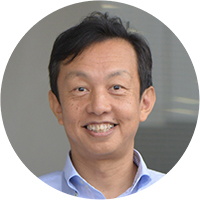 Satoshi Yoshihara
Satoshi Yoshihara
Senior General Manager, Sensing Solutions Business Division
Sony Semiconductor
"Image Sensor x AI : Creation of "MORE FUN" Lifestyle"
Sony Semiconductor Solutions, as the world’s leading provider of image sensors, has contributed to the creation of fun moments through imaging products, and further drive digitization of the real world. We envision “MORE FUN” lifestyle with image sensor x AI. This session introduces our ongoing activities.
10:00-10:30
 Siva Sivaram
Siva Sivaram
Executive Vice President of Technology and Manufacturing
Western Digital
"Scale or Perish
Memory and Storage in the Age of Big Data"
Demand for data infrastructure spurred by the explosion in big data and artificial intelligence is forcing us to reexamine the basic semiconductor components needed to build the infrastructure. Magnetic and solid state storage as well as memory components that dominate this market today will face extreme pressure to continue scaling. No single device will meet the often conflicting demands for cost, density, speed, latency, and power for application specific architectures . This talk will examine the current state of the art in data storage components and the needs going forward.
10:30-11:00
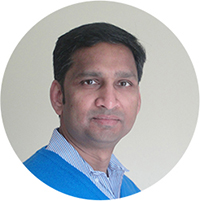 Mukesh V. Khare
Mukesh V. Khare
Vice President
IBM Research
"The Era of AI Hardware"
Purpose-built AI hardware holds the potential to unlock exponential gains in AI computations. The concurrent evolution of broad AI with purpose-built hardware is shifting traditional balances between cloud and edge, structured and unstructured data, and training and inference. Distributed deep learning approaches, coupled with heterogeneous system architectures effectively address bandwidth, latency, and scalability requirements of complex AI models. IBM Research is making further strides in AI hardware through the use of Digital AI Cores using approximate computing, non-Von-Neumann approaches with Analog AI Cores, and the emergence of quantum computing for AI workloads.
Session 2
11:00-11:30
 Handel Jones
Handel Jones
CEO
International Business Strategies (IBS)
"Interactive Presentation for ITPC: AI will Drive Growth of Semiconductor Industry"
Adoption of AI will require an increase in performance of processors and consumption of DRAM and NAND, which will result in positive growth for the semiconductor industry. Machines with AI will have higher processing power and effective IQ for many applications. Supply chain of semiconductors will be positively impacted by the adoption of AI including the need to continue reducing feature dimensions.
11:30-12:00
 David Treat
David Treat
Managing Partner
Accenture
"Blockchain + Homomorphic Encryption: The value case for the Semiconductor industry"
This presentation will explore the value cases for applying confidential shared data capabilities that can be achieved with Blockchain + Homomorphic Encryption. We will review the basics of ‘what’ these technologies do and how they can help address key industry needs across the semiconductor data ecosystem.
12:00-13:30
Lunch - sponsored by Ebara
13:30-14:00
 Jeremy O’Brien
Jeremy O’Brien
CEO
PsiQuantum
"Quantum Computing and the Semiconductor Industry"
Quantum computing promises to transform almost every industry. However, despite a quarter of a century of effort, useful systems are yet to be realized. The challenge is that useful QC requires ~1,000,000 qubits (to meet the demands of error correction). This challenge will only be met in the near term by harnessing the advanced manufacturing capabilities of the conventional silicon chip industry. I will survey the proposed approaches for achieving this goal. I will show that silicon photonics stands out in making general purpose quantum computing achievable with conventional silicon processes.
14:00-14:30
 Matt Gertken
Matt Gertken
Vice President, Geopolitical Strategy
BCA Research
"From Trade War to Cold War"
The global trade system has suffered a shock with the revival of protectionist trade policy in the United States. The origin of the shock lies in the relative decline of U.S. power, the emergence of “multipolarity” in the global political system, the populist turn in U.S. politics, and the aggressive mercantilism and revisionist foreign policy of China under President Xi Jinping. As such, the trade conflict with China is far more grievous than that with Europe or NAFTA. It should be understood as a new “Cold War” – with strategic and even military spillovers. Because technology lies at the center of this conflict – including electronics, semiconductors, and semi equipment and materials – the technology sector faces further policy-induced disruption of production, supply chains, and consumer bases.
14:30-15:00
Break
15:00-15:30
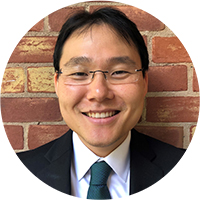 Dan Kim
Dan Kim
Senior International Economist
Office of Industries
US International Trade Commission
Using recently published research, this presentation explains the short and long term challenges faced by the semiconductor industry, focusing on three topics: First, the importance of international trade in the industry’s globalized supply chains, with a focus on China’s consumption and production of semiconductors. Second, the driving forces of industry growth and competitiveness in the age of artificial intelligence and machine learning. And third, the sources of innovation during and after the wave of industry consolidation. The aim of this presentation is to capture the linkages of these complex issues for policy experts unfamiliar with the semiconductor and related industries, and to provide a research platform for industry experts to inform policy discussions.
15:30-16:00
 Christopher Thomas
Christopher Thomas
Partner, Global Digital and Advanced Technology Strategy Practice
& Asia Semiconductor Practice
McKinsey & Company
"An Update on China’s Semiconductor Industry and Its Position in the Global Ecosystem"
China system company and end market consumption has been the growth engine of the semiconductor industry for the last decade. The entire value chain has benefited from China becoming the largest end market for basically everything. The local China semiconductor industry has been aiming to leverage this large market into a similar leadership position developing and manufacturing chips. The industry’s most recent push comes during a time of heightened geo-political uncertainty. This presentation will give an update on industry progress, parallels of the semiconductor industry to other markets where Chinese companies have developed leading positions, and how multi-national companies have responded and may respond to the development of the industry.
18:30-19:30
"Summer of Love" Reception - sponsored by Edwards & SPTS Technologies
19:30-22:00
"Summer of Love" Banquet - sponsored by Edwards & SPTS Technologies
Tuesday, November 6
07:00-08:00
Attendee Breakfast - sponsored by RASIRC
Session 3: Automotive - sponsored by Advantest
08:00-08:20
 Michael Alexander
Michael Alexander
Partner
Roland Berger
"Chip, chip, hurray – How to successfully disrupt the Automotive value chain"
08:20-08:40
 Shawn Slusser
Shawn Slusser
Vice President Automotive
Infineon Americas
"The Importance of Semiconductors for the Fast Changing World of Automotive"
Without doubt, the automotive industry is experiencing a transformation compared to the ways of the past. The pace of automotive innovation is increasing as new entrants attempt to enter the market to provide customers with new experiences and expectations. Established OEMs have responded too and are also investing in transformative innovation areas. This presentation will summarize innovations in the automotive market and what it means for the semiconductor industry.
08:40-09:00
 Chris Collins
Chris Collins
Senior Vice President, Product & Technology Enablement
NXP Semiconductors N.V.
09:00-09:20
 Manfred Amberger
Manfred Amberger
Director of Marketing & Sales
Zollner Elektronika AG
"Digital Transmission in EMS Industry"
IOT, Industry 4.0, ... and different other expressions are used to describe the 4th. industrial revolution we are all in. In the fast changing and innovative environment the EMS industry needs to have and develop capabilities to best support the OEMs, The Focus of EMS industry needs to be on Customer value, digital business modells, integration and connection and operational excellence in Organisation and processes to fulfill the needs of the market. In order to support the customer and creating customer value. Capabilities in the area of Traceability, Simulations, robotics, obsolescence management, digital factory, 3 D printing, automatization and many others are vital to deal with todays and future challenges. More than that AI is becoming importance in connection with IOT, autonomous driving, medical equipment, new materials and big data. The digital transmission has not just begun nor is it just something which affects products- it affects the whole production and supply chain in both operational and communication area to create value to the customer.
09:20-09:35
Break - sponsored by Nikon Precision
09:35-11:15
Automotive Panel: Who’s Driving? Technology’s Role in Making Smart Cars Safe
Automotive electronics are forecast to be the next explosive market driver for semiconductors, outpacing overall IC growth rates. The coming wave of electrified vehicles promised to have a dramatic impact on not only the automotive, battery and utilities markets, but also on the global semiconductor industry as the need for more manufacturing capacity spurs a surge in construction of new wafer fabs as well as back-end test and assembly facilities. Leading market researchers are projecting that device sales for the expanding range of automotive applications will reach US$73 billion in five years. Many of these semiconductors’ features and functions are focused on creating smart vehicles with capabilities such as “reading” traffic signs, distinguishing pedestrians from lampposts and recognizing when to apply the brakes. Such advanced driver-assistance systems (ADAS) represent great strides toward fully autonomous vehicles. But before the first drivers turn over their car keys to on-board electronic systems, technology providers must work together to ensure public safety. Reliable and secure data management is required within each smart car (e.g., controlling speed and lane position), among vehicles in close proximity (e.g., LIDAR and collision-avoidance systems) and between a connected vehicle and external elements (e.g., from bicyclists to orbiting GPS satellites). Artificial intelligence (AI) plays a key role in getting all of these technologies to work together in an integrated solution that can be cost-efficiently built into the next generation of smart vehicles. Making the vehicles of tomorrow safe at any speed will be discussed by this diverse panel of technology leaders.
Moderator: Judy Davies, VP Global Marketing Communications, Advantest

Panelists:




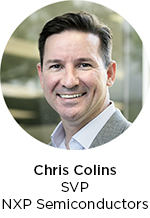

11:15
Session Ends
12:00
Lunch for conference attendees (non-golfers) - sponsored by Advantest
12:30
Golf Tournament Shotgun Start - sponsored by Hitachi High Technologies America
(lunch for golfers included)
18:30-19:30
Tropical Night, Reception - sponsored by Astronics
19:30-21:30
Tropical Night, Banquet - sponsored by Astronics
Wednesday, November 7
07:00-08:00
Attendee Breakfast
Session 4
08:00-08:30
 William Miller
William Miller
VP Engineering
Qualcomm
08:30-08:50
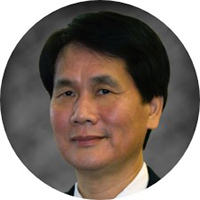 John Chen
John Chen
Corporate Vice President of Technology and Foundry Operations
nVidia
08:50-10:15
Technology Panel: Transforming Artificial Intelligence to Manufactured Intelligence
Intelligence doesn't have to remain "artificial"--it can be made or manufactured through learning. This panel will address the emerging market for intelligent systems and killer applications that promise to drive the semiconductor industry over the next decade and beyond. Discussion topics will include Artificial Intelligence, 5G, and autonomous vehicle technologies, as well as the technological requirements to satisfy and enable growth in these markets. Panelists will provide their insightful, yet different views and priorities on technology requirements and market opportunities, leading a pathway for the industry to prevail.
Moderator: John Chen, nVidia
Panelists:
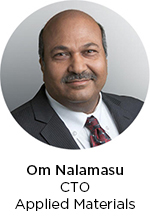

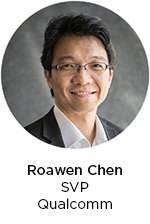
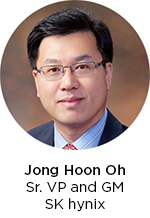
10:15-10:30
Break - sponsored by Sumitomo (SHI) Cryogenics America
10:30-11:00
 Gregg Bartlett
Gregg Bartlett
SVP, Strategy & Transformation
GLOBALFOUNDRIES
"Intelligent Innovation: Differentiated Technologies for a Data-Driven Future"
Society’s insatiable demand to share and consume data is fundamentally changing computing paradigms. In a data-centric world, power efficiency becomes a fundamental metric, which is driving a shift from general purpose computing to domain-specific computing. In the midst of this paradigm shift, Moore’s Law—the industry’s innovation engine for more than 35 years—is running out of gas. Fortunately, the end of traditional scaling does not mean the end of innovation. New applications promise tremendous growth in areas such as AI, IoT, and 5G, but enabling these emerging intelligent systems will require equally intelligent ways to deliver innovation in both technology and business models. This requires a shift in focus away from bleeding-edge scaling and toward the creation of differentiated features, allowing semiconductor providers to capture more of the value they create within the global electronics supply chain.
11:00
End of Conference





